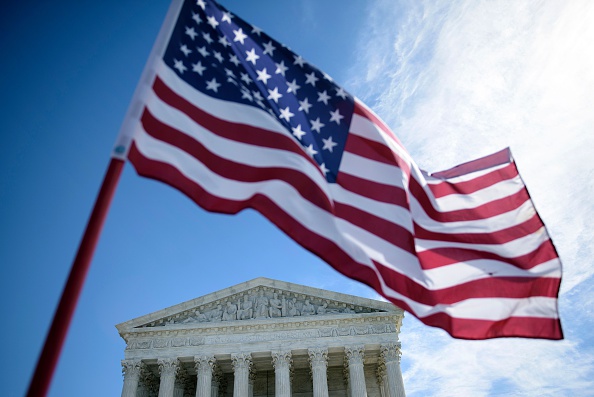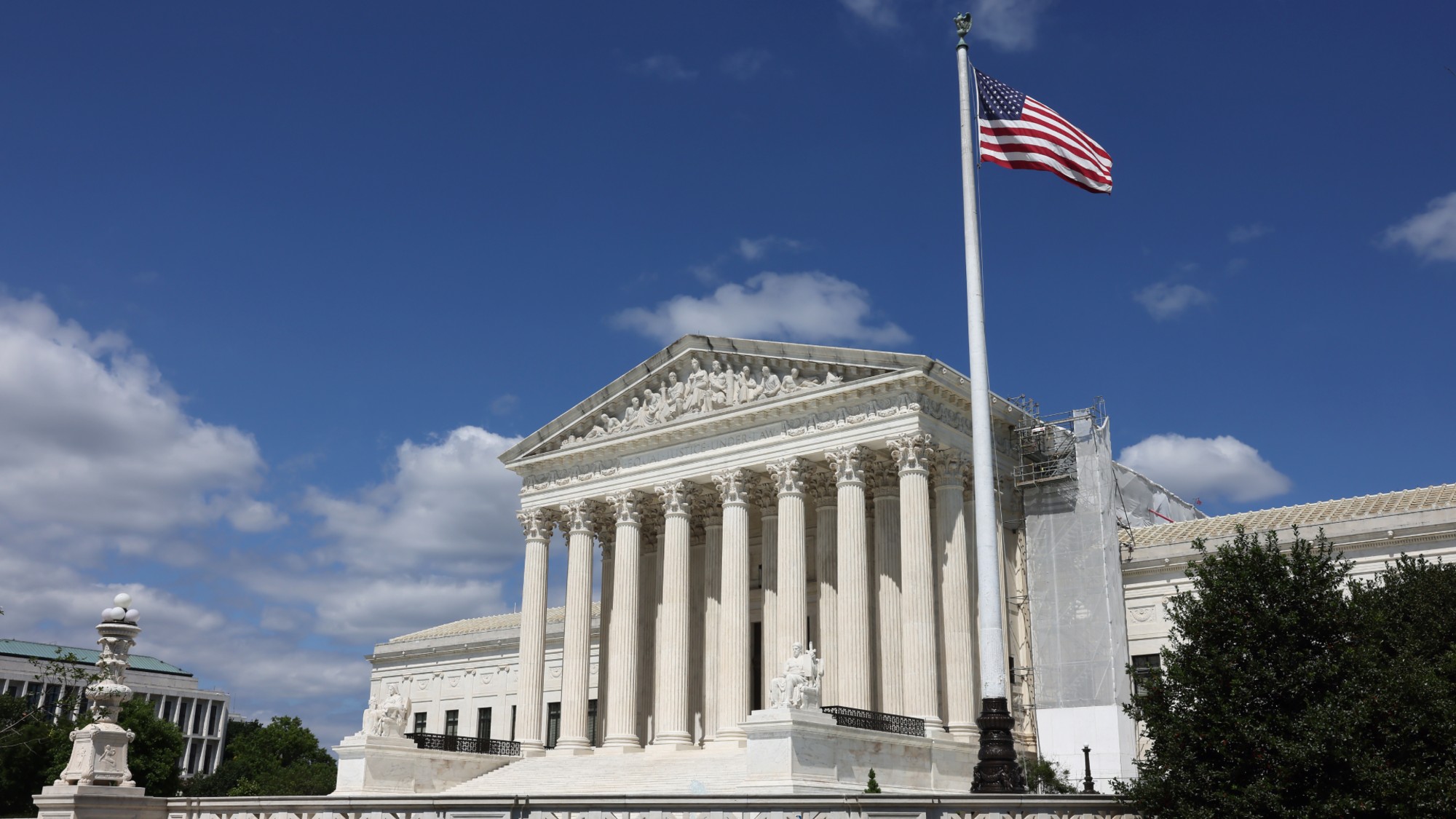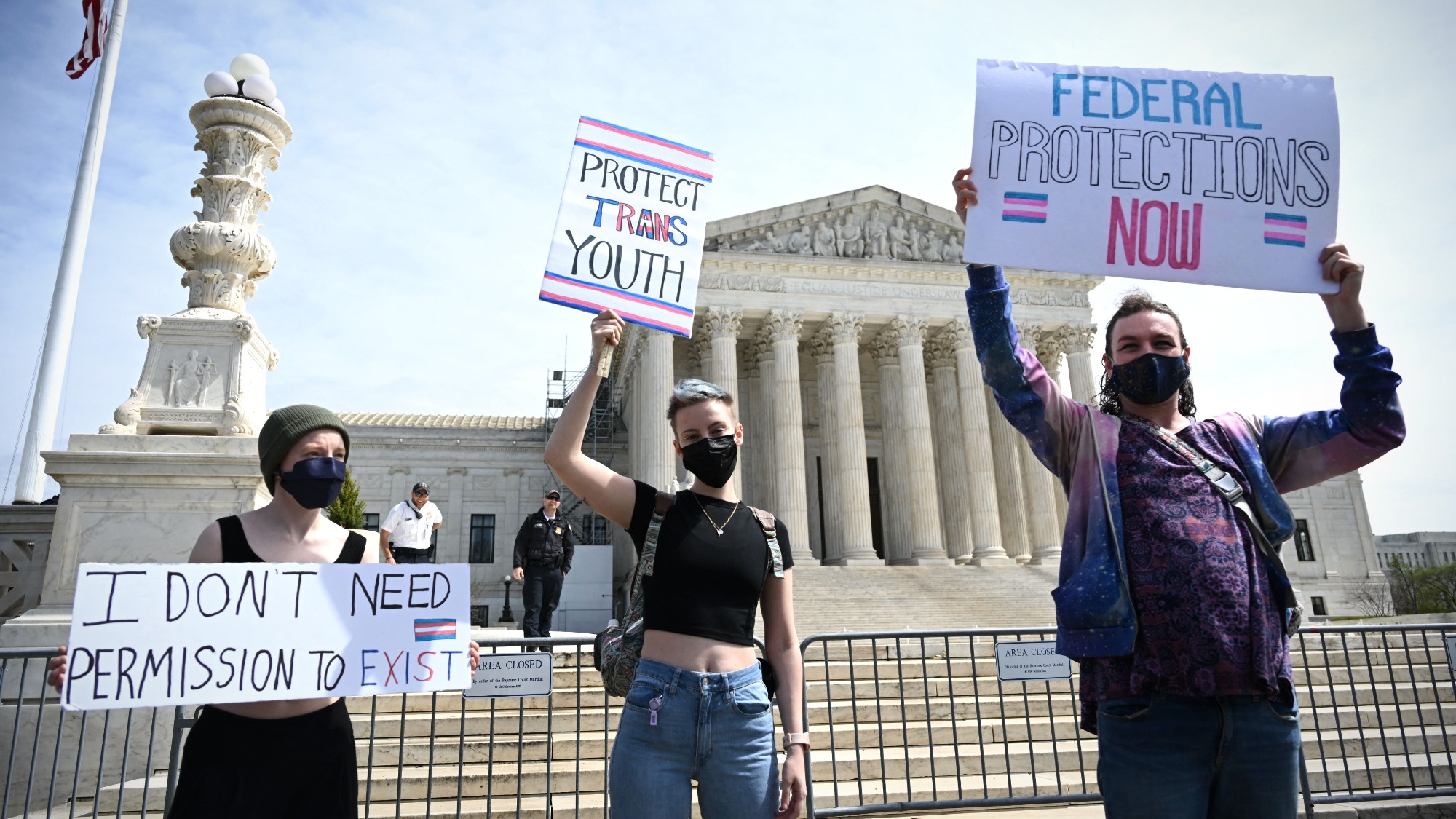Supreme Court issues its first deadlocked opinion since Justice Scalia's death

A free daily email with the biggest news stories of the day – and the best features from TheWeek.com
You are now subscribed
Your newsletter sign-up was successful
The U.S. Supreme Court hit its first deadlocked opinion since Justice Antonin Scalia's death Tuesday, splitting 4-4 on a Missouri case over whether two wives could be held responsible for their husbands' failed real estate endeavors under a federal equal-credit law. The split opinion means that while the lower court ruling will be upheld, a nationwide precedent will not be set, Bloomberg reports.
The ruling hands a victory to the Community Bank of Raymore, affirming that the wives were not discriminated against by the bank when it also demanded payment from the women after their husbands defaulted on loans, which the bank had required the women to guarantee. The women claimed the bank only required the guarantees because they were married, which they said violated the U.S. Equal Credit Opportunity Act.
However, the deadlocked opinion also means that the Supreme Court did not resolve conflicting lower court rulings on the issue and leaves the question of whether the Equal Credit Opportunity Act can be applied to those who are required to guarantee loans but who don't apply for them. Politico reports that, as a result, "Americans in some states have the protection of the rule the Federal Reserve Bank issued decades ago, imposing such a requirement, those in others don't, and in still others the Fed's authority to enforce the rule is unclear."
The Week
Escape your echo chamber. Get the facts behind the news, plus analysis from multiple perspectives.

Sign up for The Week's Free Newsletters
From our morning news briefing to a weekly Good News Newsletter, get the best of The Week delivered directly to your inbox.
From our morning news briefing to a weekly Good News Newsletter, get the best of The Week delivered directly to your inbox.
The possibility of a split opinion is one of the reasons Democrats have been pushing for Scalia's replacement to be nominated as quickly as possible. Republicans have vowed to deny any President Obama nominee in favor of allowing the next president to make the pick.
A free daily email with the biggest news stories of the day – and the best features from TheWeek.com
-
 The Olympic timekeepers keeping the Games on track
The Olympic timekeepers keeping the Games on trackUnder the Radar Swiss watchmaking giant Omega has been at the finish line of every Olympic Games for nearly 100 years
-
 Will increasing tensions with Iran boil over into war?
Will increasing tensions with Iran boil over into war?Today’s Big Question President Donald Trump has recently been threatening the country
-
 Corruption: The spy sheikh and the president
Corruption: The spy sheikh and the presidentFeature Trump is at the center of another scandal
-
 How far does religious freedom go in prison? The Supreme Court will decide.
How far does religious freedom go in prison? The Supreme Court will decide.The Explainer The plaintiff was allegedly forced to cut his hair, which he kept long for religious reasons
-
 The Supreme Court case that could forge a new path to sue the FBI
The Supreme Court case that could forge a new path to sue the FBIThe Explainer The case arose after the FBI admitted to raiding the wrong house in 2017
-
 ABC News to pay $15M in Trump defamation suit
ABC News to pay $15M in Trump defamation suitSpeed Read The lawsuit stemmed from George Stephanopoulos' on-air assertion that Trump was found liable for raping writer E. Jean Carroll
-
 Judge blocks Louisiana 10 Commandments law
Judge blocks Louisiana 10 Commandments lawSpeed Read U.S. District Judge John deGravelles ruled that a law ordering schools to display the Ten Commandments in classrooms was unconstitutional
-
 Supreme Court to weigh transgender care limits
Supreme Court to weigh transgender care limitsSpeed Read The case challenges a Tennessee law restricting care for trans minors
-
 ATF finalizes rule to close 'gun show loophole'
ATF finalizes rule to close 'gun show loophole'Speed Read Biden moves to expand background checks for gun buyers
-
 Hong Kong passes tough new security law
Hong Kong passes tough new security lawSpeed Read It will allow the government to further suppress all forms of dissent
-
 France enshrines abortion rights in constitution
France enshrines abortion rights in constitutionspeed read It became the first country to make abortion a constitutional right